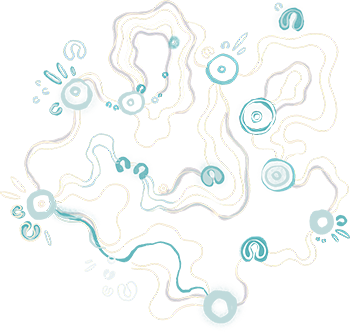
Outcome statement
NSW Health is a leader in the elevation and application of social, cultural, economic, political, commercial and planetary determinants of Aboriginal health in the pursuit of improved health and wellbeing outcomes.
Strategic priorities
-
Strategic priority 4.1 - Social and cultural determinants of health
To increase knowledge, understanding and application of the social and cultural determinants of health in health policy and services that involve and/or impact Aboriginal people. -
Strategic priority 4.2 -Economic, political and commercial determinants of health
To increase knowledge, understanding and application of the economic, political and commercial determinants of health in health policy and services that involve and/or impact Aboriginal people. -
Strategic priority 4.3 - Planetary determinants of health and climate change
To increase knowledge, understanding and application of the planetary determinants of health and climate change in health policy and services that involve and/or impact Aboriginal people.
Why is this important?
For Aboriginal people and communities, health is a more complex concept than the absence of physical disease, injury or illness experienced by individuals. It includes the physical, social, emotional and cultural wellbeing of the entire community in which each individual exists. Health is, therefore, the state in which individuals can achieve their full potential as a human being, thereby bringing about the total wellbeing of their community110.
All the factors affecting an Aboriginal person’s social, cultural, economic, political, commercial and planetary circumstances are ultimately ‘determinants of health’, as they directly shape a person’s wellbeing–whether positively or negatively. While these determinants are closely interlinked for all peoples, they are central to Aboriginal communities’ holistic approaches to health.
Not all policy levers affecting the determinants of health are within the remit of NSW Health, pointing to the need for strong cross-sector collaboration, as noted in
Reform priority 1.5: Cross-sector collaboration, place-based and strengths-based approaches that privilege Aboriginal ways of knowing, being and doing are also critical in effectively addressing the determinants of health.
By improving health system organisations’ understanding of the different determinants of health, they are more likely to be consistently considered in the design, planning, implementation, monitoring and evaluation of health services. This strategic direction also has strong parallels with strategic priorities 3 and 6 of the
Future Health Strategic Framework, which have committed NSW Health to, respectively, ‘addressing the social determinants of ill health in our communities’ and ‘[managing the health system] with an outcomes-focused lens to deliver a financially and environmentally sustainable future’111.
Strategic priority 4.1 - Social and cultural determinants of health
To increase knowledge, understanding and application of the social and cultural determinants of health in health policy and services that involve and/or impact Aboriginal people
The World Health Organization defines the social determinants of health as ‘the non-medical factors that influence health outcomes. They are the conditions in which people are born, grow, work, live, and age, and the wider set of forces and systems shaping the conditions of daily life. These forces and systems include economic policies and systems, development agendas, social norms, social policies and political systems’112,
113,
114.
The social determinants are well-understood to have a powerful influence on health inequities.
For Aboriginal people and communities, major social determinants include areas of public policy in which Aboriginal people have historically been excluded or under-served, such as education, employment, housing/ land tenure, social inclusion, and interactions with legal systems115.
The cultural determinants of health are anchored in Aboriginal ways of knowing, being and doing, centred upon the relationship of self to Country, kin, community, and spirituality. They are rights-based, as they hinge upon the inherent right to practice one’s Aboriginal culture, including through: connection to Country, family, kin and community; Aboriginal beliefs and knowledge; cultural expression and continuity; Aboriginal language; and self-determination and leadership116. They are interrelated to the social determinants of health.
“We should be using allies to help carry the load.”
“…non-Aboriginal champions who understand social determinants of health to ensure cut-through.”
Aboriginal NSW Health staff consultation participants
Policymaking does not occur in the absence of culture. It is informed and shaped by the culture of predominantly non-Aboriginal policymakers117. For this reason, cultural safety in health systems, whereby Aboriginal staff, patients, families, organisations and policymakers see their cultural identities and practices validated and upheld, is essential to supporting the cultural determinants of health. The National Health Plan acknowledges the role of the cultural determinants of health and commits to centring them in policy and practice118.
What does success look like?
Consideration and application of the social and cultural determinants of health are institutionally embedded in health policy and services that involve and/or impact Aboriginal people across the health system.
How success will be achieved
- Develop and/or source and provide capability strengthening initiatives for the health workforce on social and cultural determinants and how they relate to health impacts.
- Identify social and cultural determinants priorities in partnership with Aboriginal people and organisations, including priority population groups.
- Establish and implement co-creation opportunities for commissioning, developing and delivering social and cultural determinant initiatives, involving relevant non-health services and sectors.
- Establish and implement co-creation opportunities for monitoring and evaluating social and cultural determinant initiatives, including with priority population groups.

Strategic priority 4.2 - Economic, political and commercial determinants of health
To increase knowledge, understanding and application of the economic, political and commercial determinants of health in health policy and services that involve and/or impact Aboriginal people
The economic determinants of health, while inextricably linked to social determinants, focus on the effects of government policies on social norms of Aboriginal peoples’ and communities’ ability to gain employment, advance in the workforce, access capital, establish and expand businesses, accumulate and protect wealth, manage financial risk, and pass wealth on intergenerationally119. All these elements affect Aboriginal peoples’ overall wellbeing, including the ability to access quality healthcare.
The political determinants of health refer to Aboriginal communities’ ability to practice collective self-determination by deciding and implementing their own policy agendas, through their own governance structures, and according to their own systems of law and lore120. Colonial practices have wrought significant damage to the political determinants of health, however, many Aboriginal nations across Australia are working to restore and revitalise their self-determining systems of governance through nation-building121. This is explicitly acknowledged as a right of Indigenous peoples in the UNDRIP122 and the National Health Plan highlights nation-building as a critical element for genuine partnerships123.
The commercial determinants of health are private sector activities affecting people’s health, directly or indirectly, positively or negatively. Product manufacturing impacts the natural and built environment. Workplace conditions affect employee physical and mental health. Pricing, marketing and distribution determines access and availability of products and services. These types of commercial activities by private sector organisations shape the physical and social environments in which people live and work and are a key determinant of Aboriginal peoples’ and communities’ health and wellbeing.
While the commercial determinants of health affect everyone, young people are especially at risk, and some commercial activities disproportionately affect some populations, worsening pre-existing economic, social and racial inequities124.
Australia’s federated system of government means the economic, political and commercial determinants of health are strongly influenced by Australian Government policy, funding decisions and legislation. Some determinants will therefore be out of scope for the NSW Government; accordingly, the below strategies focus on activities that fall within the remit of NSW Health, but will also be important sites of cross-portfolio and intergovernmental cooperation. Therefore, these approaches are complementary to the work outlined in
Reform priority 1.5: Cross-sector collaboration and
Priority reform area 5: Employment, business growth and economic prosperity.
What does success look like?
Consideration and application of the economic, political and commercial determinants of health are institutionally embedded in health policy and services that involve and/or impact Aboriginal people across the health system.
How success will be achieved
- Develop and/or source and provide capability strengthening initiatives for the health workforce on economic, political and commercial determinants and how they relate to health impacts.
- Identify economic, political and commercial determinants priorities in partnership with Aboriginal people and organisations, including priority population groups.
- Establish and implement co-creation opportunities for commissioning, developing and delivering economic, political and commercial determinant initiatives, involving relevant non- health services and sectors.
- Establish and implement co-creation opportunities for monitoring and evaluating economic, political and commercial determinant initiatives, including with priority population groups.
Strategic priority 4.3 - Planetary determinants of health and climate change
To increase knowledge, understanding and application of the planetary determinants of health and climate change in health policy and services that involve and/or impact Aboriginal people
As the effects of climate change upon human wellbeing reach greater severity and prominence in health policy, health organisations internationally have recognised a need to move from the concept of environmental to a broader concept of planetary health. Environmental health is the way the immediate physical, chemical and biological environments we live in can affect our health and wellbeing125. Planetary health, meanwhile, refers to the health of human civilisation in terms of ‘the state of the natural systems on which it depends’126,
127. As global human health is dependent on natural systems, planetary health acknowledges the potential harm that comes from human-caused disturbances of these systems.
The planetary determinants of health extend on environmental health as described in
Strategic priority 3.3. Climate change, and the technological, industrial and policy changes needed to mitigate and adapt to it, are a central focus of planetary determinants-led approaches to health. The implications for the health and wellbeing of Aboriginal peoples – who contribute the least to climate change yet experience its most severe consequences – are profound128,
129,
130,
131. Given Aboriginal peoples’ history of caring for Country for more than 65,000 years, centring Aboriginal knowledges in approaches to the planetary determinants of health is vital.
What does success look like?
Consideration and application of the planetary determinants of health and implications of climate change are institutionally embedded in health policy and services that involve and/or impact Aboriginal people across the health system.
How success will be achieved
- Develop and/or source and provide capability strengthening initiatives for the health workforce on planetary determinants and climate change and how this relates to health impacts.
- Identify planetary determinants and climate change priorities in partnership with Aboriginal people and organisations, including priority population groups.
- Establish and implement co-creation opportunities for commissioning, developing and delivering planetary determinants of health and climate change initiatives, involving relevant non- health services and sectors.
- Establish and implement co-creation opportunities for monitoring and evaluating planetary determinants of health and climate change initiatives, including with priority population groups.
- Implement disaster planning and preparedness initiatives that address current and future needs in partnership with Aboriginal people and organisations.